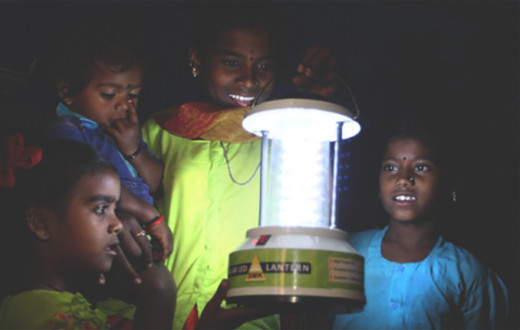
A Sacred Responsibility
When it comes to children, parenting is a sacred responsibility. Our responsibility is not just providing food, shelter, and education. We are also responsible to ensure their mental outlook, emotions, intellect, thought processes, and behavior is on the right track. This is necessary.
If you are very orderly, children will make your life chaotic. Children are the best at breaking your boundaries. I remember how one of my uncles used to be very strict with my sister and me. When he had a son, his son started disciplining him and broke all his barriers. So, your children teach you a lot that others may not be able to.
How to be a good parent?
To be a good parent, the first few tips for you to do are:
#1 Observe Your Child’s Tendencies and the Direction Your Child is Taking.
Don’t try to make your child fit into your own vision. This is a big mistake many parents make. You have to share your vision with your child and dissuade them if their vision is wrong. Every child has come to this planet with certain tendencies that cannot be changed, and certain acquired talents that can be controlled. You can do a lot through modifying the acquired talents or personality of a child, but you cannot do anything about the seed that a child is born with. That will always manifest. You have to learn to distinguish between these two aspects – therein lies wisdom. And half the job is done if you can do that. The other half has to be left to the cosmos. You have no control over it.
#2 Be Sensitive
When parenting a child, you have to be very sensitive. This is one thing that you have to keep in mind. If you tell children not to lie and ask them to answer a phone call saying ‘You are not at home’, this is simply not going to work.
#3 Avoid Arguments in Front of Your Children
Avoid arguments at all costs in front of your children. Ensure they are nowhere when you argue. Also, given their sensitive nature, they can sense there has been discord between adults, so do your best to patch up before your children are back in the same room or back home.
#4 Encourage Them to Share
Many times, we encourage the tendency in children not to give things away and to keep things with themselves. When this goes beyond a certain limit, children feel suffocated. In time, they develop a tendency of holding back their feelings and emotions as well, which can be a hindrance to their personality. You must encourage the attitude of sharing with your children as this helps them develop a healthy personality.
#5 Give Them a Dream and Help Them Walk towards It
The whole process of parenting teaches you a lot of patience and perseverance. You have to help in leading your children towards where they should be going. Giving them a dream and persuading them to walk towards the dream is the biggest challenge in front of parents today. So, it is best to expose them to multifarious activities. This has to be done before a child is 10 years old. You should take your children to science and arts fares and expose them to all the faculties.
#6 Engage Your Children in Social Service
On a Sunday, give them some chocolates and ask them to distribute them to the poorest people they can find. Once or twice in a year, take them to a slum and ask them to engage in social service. This would enhance their personality in many subtle ways and make them more thankful for what they have.
#7 Give Your Children a Holistic Education
You have to expose your children to science as well as the arts – both sides of the brain need to be nourished. For example, a book symbolizes nourishing the left-hand-side brain whereas any musical instrument symbolizes nourishing the right-hand-side brain. The two parts of the brain have to be balanced by the meditation. So, knowledge, music, and meditation – all three are required to make education complete. Only when these 3 are developed can you call someone educated and civilized. So, make sure that children learn music and yoga, and have a scientific temperament.
#8 Protect Your Child’s Trust
Children, by nature, have a tendency to be trusting. But somehow, their trust is broken. We need to look into that. Do they trust themselves? Do they have enough confidence in themselves? A healthy child has three kinds of trust:
a. Trust in themselves
b. Trust in the goodness of the people around them and in society
c. Trust in God or a higher power
These three types of trust are prerequisites for children to blossom into good human beings.
#9 Encourage Your Children to Interact with All Age Groups
Observe your child’s interactions. See how they interact with those younger to themselves and how they interact with those older? Then observe how they interact with those in their own age group? These observations can reveal a lot. You can observe whether your children are developing any superiority or inferiority complexes, or whether they are becoming introverts or extroverts. And you can play a very important role here to preempt these negative traits from manifesting. Play some games with them and encourage them to interact with all age groups.
Children who have an inferiority complex would like to interact more with the younger ones and would try to run away from elder ones and even try to avoid their equals. Children with superiority complexes shun the younger ones and would only want to relate to the older ones. They are not good communicators in either case. As parents, you can teach them communication skills early on. It is very important for them to learn how to communicate.
#10 Instill a Sense of Balance in Your Child
Do you encourage your children's complaints? Do you encourage the negativity or do you mold it into something positive? You have to play a balanced role. Sometimes your child comes to you and says that so and so is so good, but you know that that child is not so good. Here you have to point out the challenges that you have observed in their personalities and bring your child to the center.
Sometimes, they get swayed by somebody whose habits are not so good; you have to inform them about the negative things.
In the same way, when they are telling you negative things about somebody, you have to point out the positives. So, you have to do a balancing act whenever a child swings too much to the left or too much to the right.
Parenting is a two-way journey. You have to see what you want to learn from them and what you want to teach them!






















